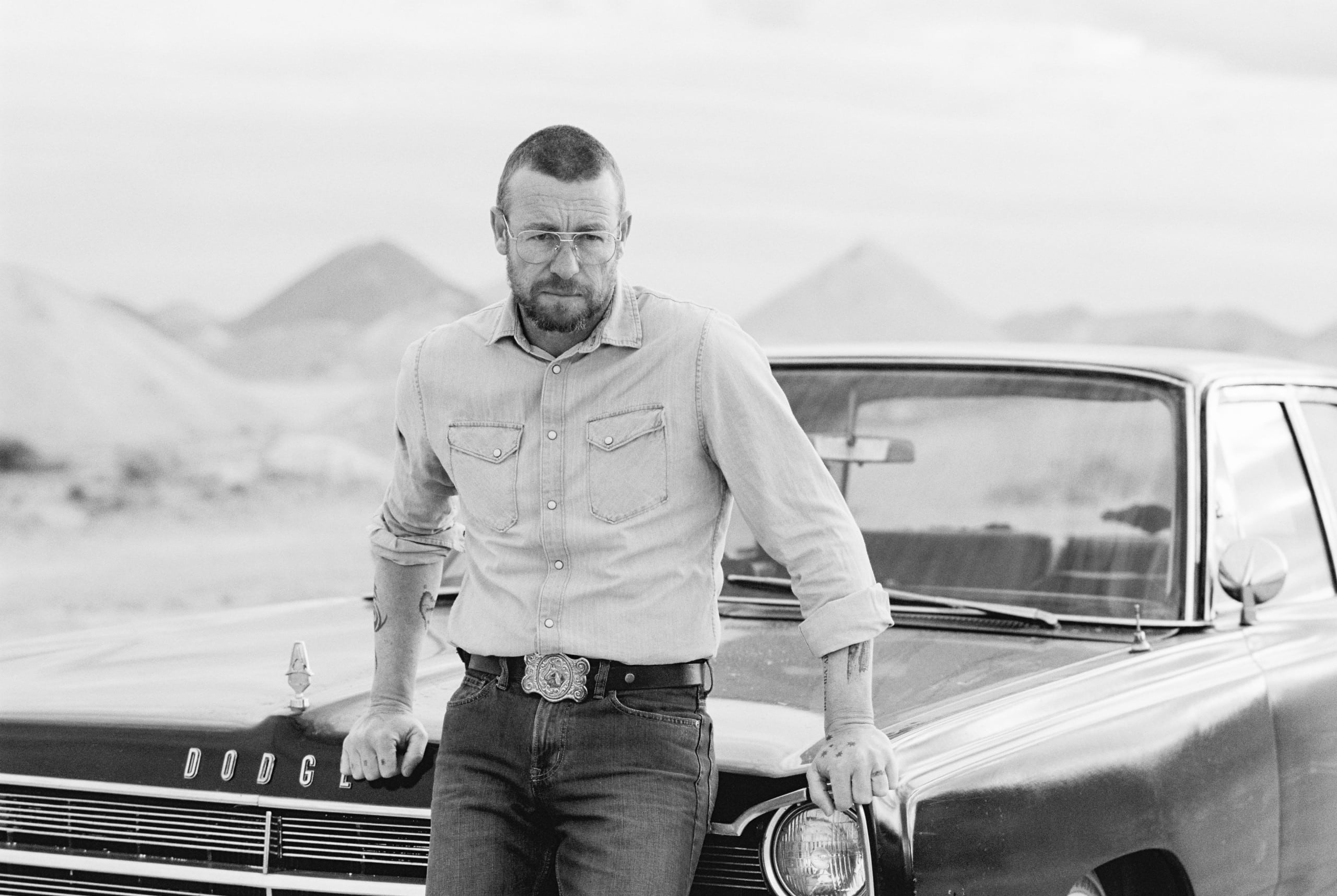“A pared-to-the-bleached-bones existential thriller”.. The Guardian review of Ivan Sen’s latest film Limbo sums it up awfully well. The unworldly underground/overground landscape of Cooper Pedy shot in black and white to tell a story that appears to be an outback noir detective pursuit (a la Goldstone) but turns out to be both an Indigenous pursuit of justice and the jaded white detective’s hunt for his own soul. All of it slowed down to the pace of the rumbling antique Dodge car in which PC Travis is forced to pursue investigations.
Gamileroi/Croatian man Ivan Sen is Australia’s premier auteur film-maker. He writes, directs, shoots, edits and composes for his films – which include Beyond Clouds, Toomelah (his mum’s home town), Mystery Road, Goldstone and Loveland, his unseen foray into both science fiction and Asia.
With Mystery Road (both film and TV series) and Goldstone he went to an empty piece of Oz desert and created an ersatz world in which to have his Black detective Jay Swan (Aaron Pedersen) solve crimes that the white authorities didn’t want solved. In Limbo, he’s chosen the real/unreal world of Cooper Pedy where the heat and the opals have forced all the white miners to live and work underground. Needless to say, theyr’e a weird bunch. But oddly, heat seems to play no part in this film – car windows are open and no one breaks into a sweat.
Perhaps Sen is portraying an Indigenous version of Cooper Pedy.
For Simon Baker’s cop, sent unwillingly to follow up on the 20 year old disappearance of a Black girl, becomes inexorably sucked into the traumatised world of her siblings Charlie (Rob Collins) and Emma (Natasha Wanganeen – not seen by me since she was a kid in Rabbit Proof Fence). For the failure of police efforts to achieve anything 20 years ago apart from arresting a few Black fellars including Charlie, has put their lives in limbo, and even threatens their kids, especially Charlie’s deserted son, poised to go offtrack.
Travis empathises through his tatts and heroin, for he too has lost a son in a bitter divorce.
You’ve never seen Simon Baker/The Mentalist like this in Breathe or High Ground, every wrinkle filled with grit. Not a smile throughout the film, even when he achieves a sort of solution to both the crime its social consequences. Wanganeen, just about holding her family together, is equally rough and needy. A smoother Rob Collins never quite captures the trauma that’s taken over his life, nor does the script really explain why his inherent distrust of anyone white is overcome by Travis. The always mystifying Nicholas Hope, on the other hand, plays a weird, dying miner to the manner born.
Which leaves the absolutely essential look of the film. Why black and white in the land of opalescence? Certainly it’s not a reflection of an absolute morality. But the contrast of the noir world of shadows underground with the blinding white of the million heaps brought up from underground and left lying around above it is conflictingly both beautiful and degraded.
And an Indigenous essence lies beneath both in the surface anger, distrust and trauma and the few hints of a traditional solidity just under that surface. Charlie paints up to take his anger out on the town with a few drive-by pot-shots. His son engages with other truanting kids in mock ceremonial dancing and almost gets taken away by elders for initiation. Fortunately a traumatised cop seems almost as effective.
In cinemas 18th May, and still around in some of them.
But I note it appears on ABC TV this weekend. Not to be missed.



